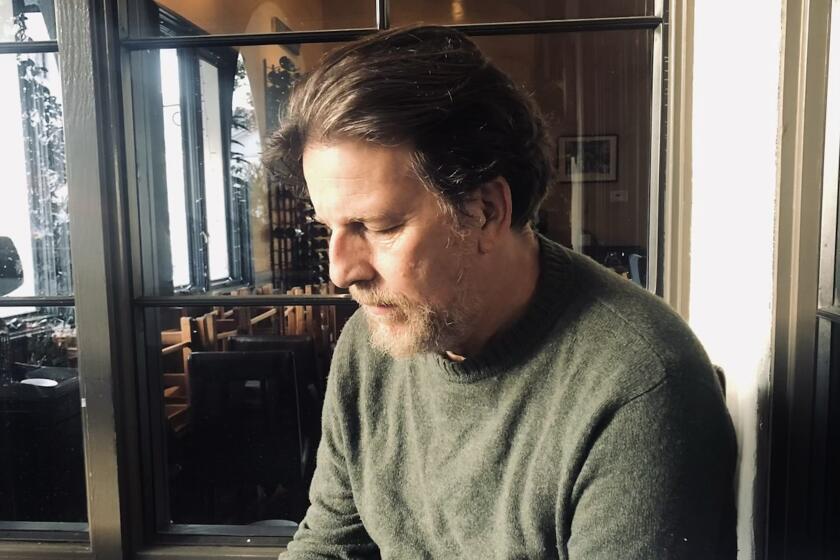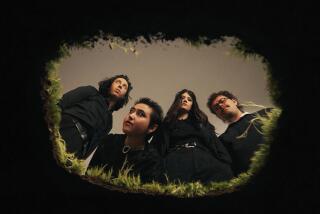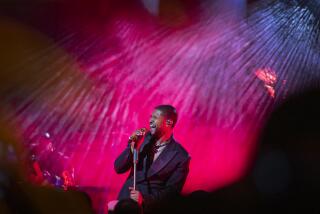Can revived music venue Saint Rocke bring a punk-powered spotlight to the South Bay?
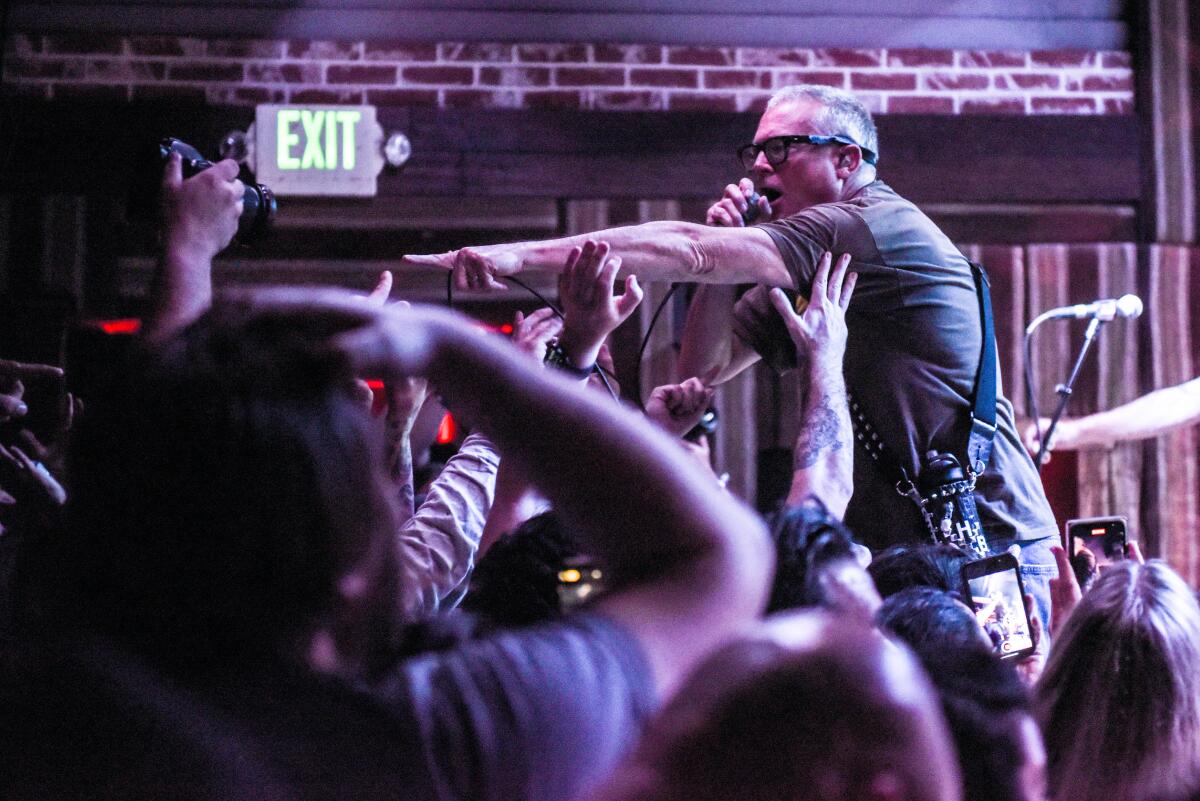
The South Bay has produced some of the most revered bands in punk history (Black Flag, Descendents, Redd Kross, Circle Jerks, Minutemen and Pennywise). Yet the region between LAX and Long Beach has struggled to maintain a live venue that could host national, touring and local acts. The new owners of Hermosa Beach’s Saint Rocke are trying to change that.
The 290-capacity venue on Pacific Coast Highway opened in March 2008, but held its final show in March 2020 due to the pandemic. Saint Rocke sat dormant for approximately three years until Dani Grant, 52, purchased the business on Jan. 4. Grant took possession of the building Feb. 1, opened March 4 and has hosted soft opening shows with Black Flag, the Skatalites, the Aggrolites, tribute band Led Zepagain, the Dan Band and the English Beat.
Grant lives in Fort Collins, Colo., where she owns a chain of bowling alleys and the Mishawaka Amphitheatre. She’s also expanded Saint Rocke’s ownership to include her romantic and business partner Larry Little, Warped Tour founder Kevin Lyman, Pennywise singer Jim Lindberg and Saint Rocke founder Allen Sanford, who maintains a 5% interest in the business. The team, Grant says, provides her and Saint Rocke with expertise in running a venue and South Bay knowledge.
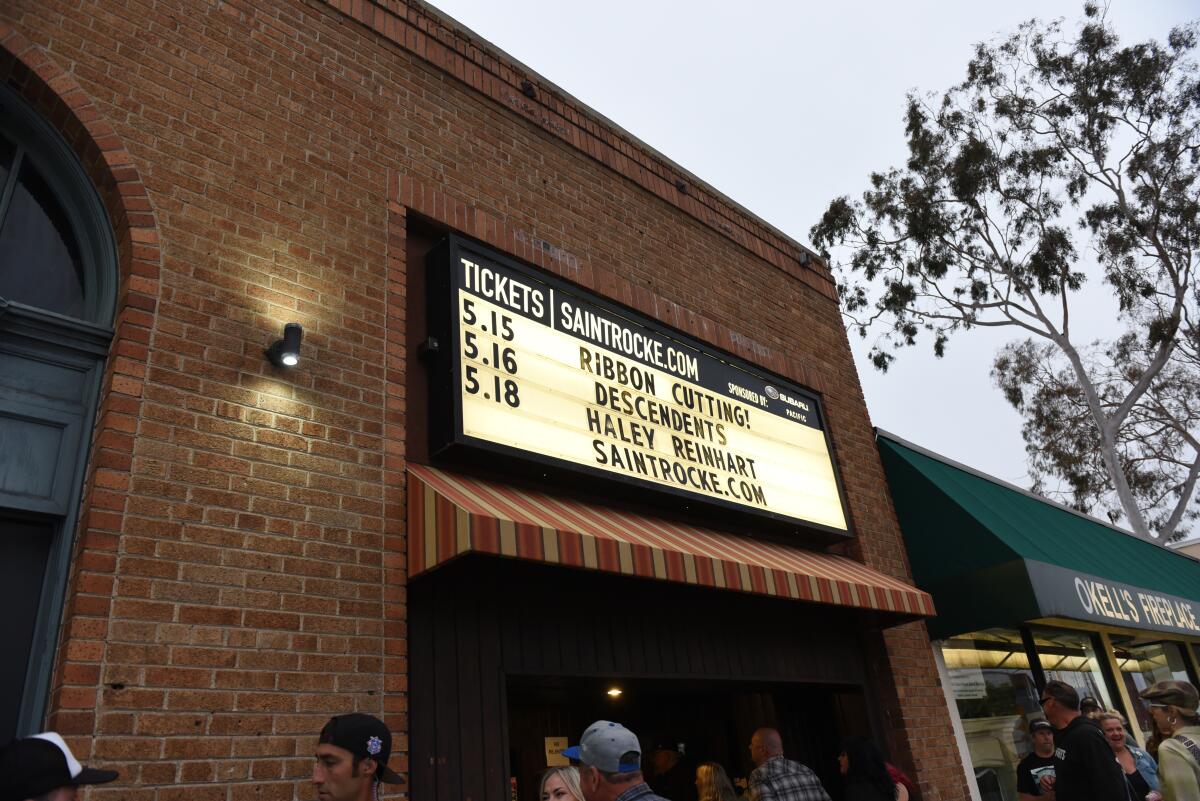
“(Allen) stayed on as a minority owner and got really excited about my vision and didn’t want to get out,” Grant says. “Kevin Lyman is a great friend of mine. He’s been a mentor to me in terms of operations, so when I bought this club I called him and he said he agreed to come on as a minority owner as well. Jim Lindberg reached out to me because he works with Allen, and I ended up offering him a minority position because I really wanted his local voice. I’m not from California, so the more locals I can get on my team, the more comfortable I feel doing something in their town.”
The new ownership has changed Saint Rocke’s lighting and production, raised the ceiling height, removed decorative columns, added a barrier in front of the stage, moved the entrance so fans don’t walk past the green room and removed tables that used to be in front of the bar to allow for more space for patrons. The former Saint Rocke served food, but Grant says these changes exemplify her team’s interest operating a night club instead of a restaurant.
“We want to focus on it being a live music venue,” Grant says. “Maybe in the future we can have a ghost kitchen and maybe do pizza or something in there.”
“We tried to address all the complaints [agents and managers] had about the place,” Little, 53, says, “the three poles that were in the middle of the room that made especially punk rock almost a no-go or bathroom in the green room. You might have remembered this room as a place where you could have dinner, but now we’re a legitimate venue and we’re going to make people want to come over from other sides of town.”
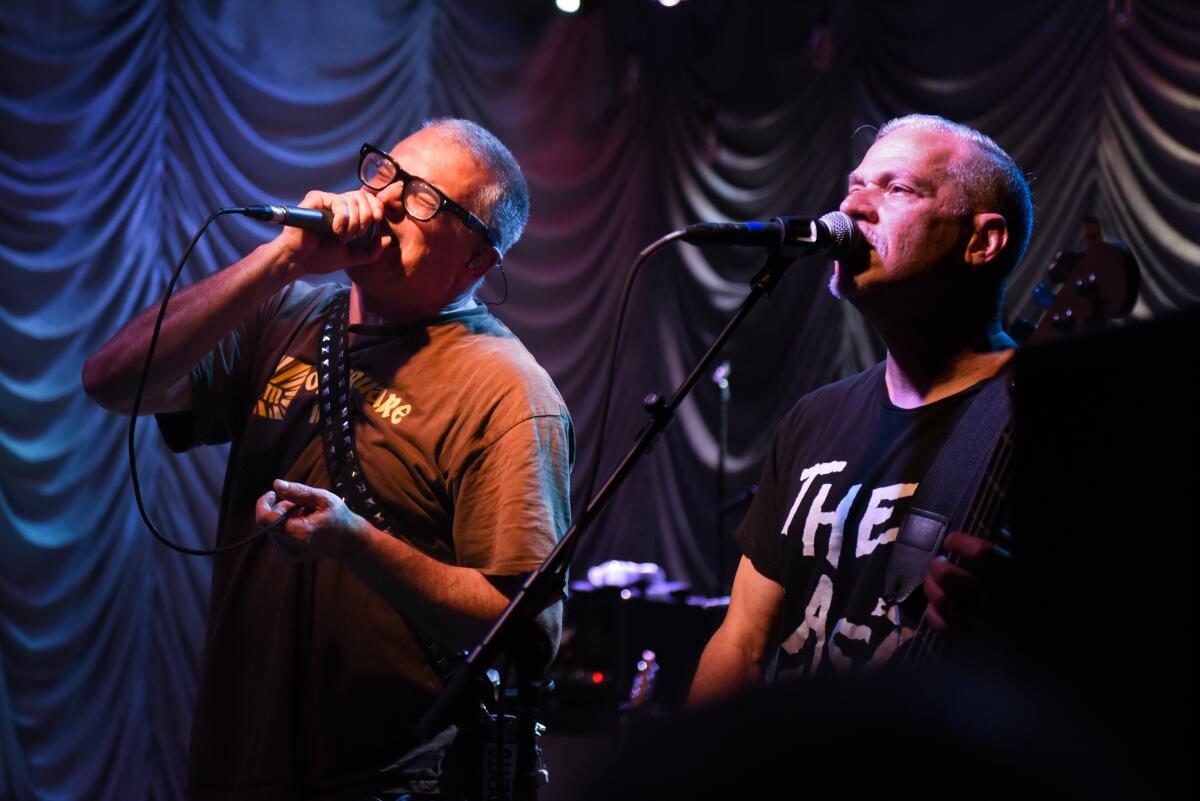
Last Tuesday, Saint Rocke celebrated its official grand opening with Descendents, along with the bands One Square Mile and Plasma Canvas — the latter of which includes Descendents drummer Bill Stevenson’s son Miles on guitar— kicking off the show. The show was a homecoming for the headliners — singer Milo Aukerman, 60, and Stevenson, 59, graduated from Manhattan Beach’s Mira Costa High School in 1981. (Aukerman lives in Delaware and Stevenson lives in Colorado.) The band’s 1982 debut album “Milo Goes to College” is considered a classic in American hardcore due to its frantic tempos mixed with melody and pop sensibilities. Many consider the record the foundation for the pop-punk genre, making the group — and the South Bay — influential across the globe.
“I consider it home as long as I don’t go to certain areas,” Stevenson says. “The tackle store became a Jamba Juice. As long as I don’t go to those areas, as long as I go to the beach and to certain old restaurants that are still there, then I really feel it. The ocean breeze and the beach itself, going in the water, in that beach, in my beach. Yeah. My waves. Yeah.”
Descendents were in the midst of a five-day California tour that included stops in Santa Cruz, Fresno, San Diego and Ventura, but both members say returning to the South Bay to perform at a small venue is important to them and the region.
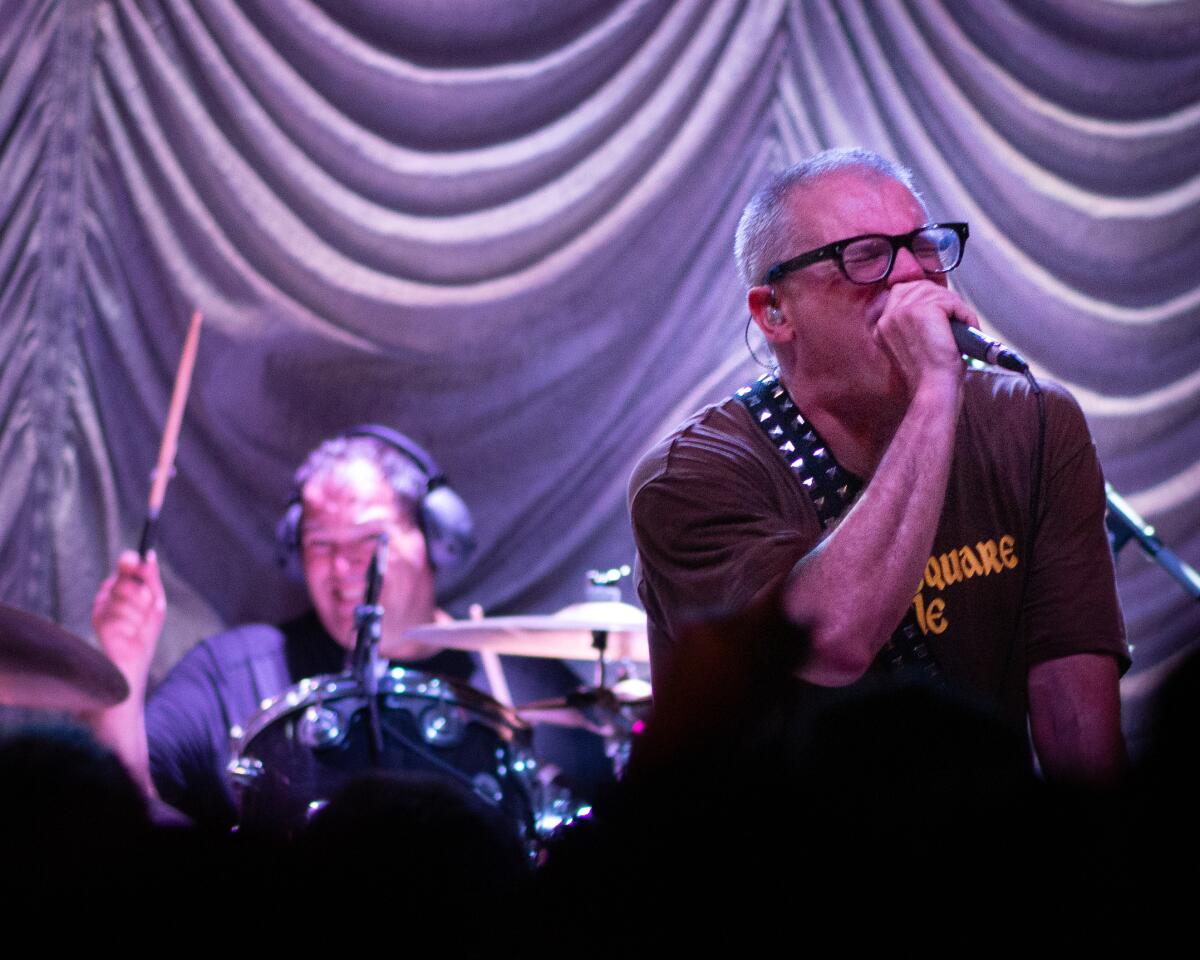
“These are the best shows,” Stevenson says. “When I’m on my deathbed thinking about all the memories in my life, it’s going to be in those little clubs. It’s not going to be playing some big, huge place. When I’m practicing and I visualize how it’s going to be when we get out there, all I’m thinking about is this little club. I’m not thinking about all the other bigger shows we have on the tour.”
“Plus, we don’t play Hermosa Beach very much,” Aukerman says. “The great thing about them resurrecting this club is that it’s so hard to get clubs to thrive in that area. We’ve only played there a few times, so every time we have a chance to play Hermosa, that’s going to be something we’re going to grab for sure.”
And grab they did. Last Tuesday’s 75-minute performance opened with “Everything Sux” and “Hope.” Stevenson asked the crowd if anyone in the audience grew up on his street and if they remembered local businesses and fishing boats while guitarist Stephen Egerton reminded the crowd that the tackle box store Stevenson referenced was owned by original Black Flag and Circle Jerks singer Keith Morris’ father.
The show also featured Aukerman noting his children on the dancefloor and bassist Karl Alvarez’s t-shirt that read “The Last,” a Hermosa Beach band that influenced the early Descendents sound best known for its 1978 single “She Don’t Know Why I’m Here.” Descendents performed again at the club the following night during which Stevenson’s son Miles played guitar on “Without Love” and Aukerman dueted on ukulele with his daughter Claire Andreasen on vocals for a cover of Blondshell’s “Salad.”
In November, Descendents headlined two nights at the 800-capacity Glass House in Pomona and has been atop the bill atthe Hollywood Palladium on multiple occasions. While playing a 290-capacity show in their hometown is special for the band, the show is also part of Saint Rocke’s strategy to get more bands to perform in the South Bay.
“It’s the hope that we can get underplays, tour kickoffs, warmup shows, that type of thing,” Little says. “Agents I know never thought of putting bands over there. I want to be a legitimate venue that people consider as another spot on the run.”
More to Read
The biggest entertainment stories
Get our big stories about Hollywood, film, television, music, arts, culture and more right in your inbox as soon as they publish.
You may occasionally receive promotional content from the Los Angeles Times.
